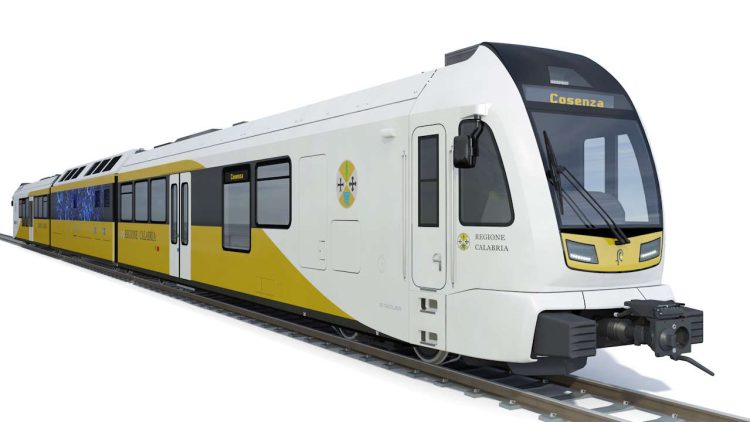European group Lhyfe has announced the completion of a green hydrogen production plant and filling station at Deutsche Bahn‘s Tübingen Innovation Hub in southwest Germany.
The hydrogen produced will allow Deutsche Bahn to begin running hydrogen trains from the end of this year.
They will operate on a trial route in Baden-Württemberg, specifically between Tübingen, Horb and Pforzheim, and are said to be carbon-neutral.

The plant at Tübingen can produce up to 30 tons of renewable hydrogen a year, which converts to a capacity of 1MW.
The site incorporates sections for several processes, namely production, multiple compression, storage and refuelling, and this posed challenges during the commissioning of the project.
The use of hydrogen as a sustainable source of rail energy is part of Deutsche Bahn’s “H2goesRail” project.
The H2goesRail project is a pioneer in the field of passenger and freight transportation
Luc Graré, Head of Central and Eastern Europe at Lhyfe
Although Lhyfe has already been operating several such plants in France, this is its first one in Germany.
The hydrogen producer is also currently working on completing a much larger site at Schwäbisch Gmünd, where annual production capacity is planned to exceed 1200 tons.
The Tübingen project has seen Lhyfe open its first system, which is mostly autonomously operated and which couples together a large-scale filling station and production hub, thereby integrating the production and customer delivery processes.
Rolling stock manufacturer Stadler is also working on hydrogen rail projects and has delivered hydrogen-run trains to Italy and California.

This project demonstrates the economic viability of hydrogen solutions in the transport and mobility sector. Sustainable energy sources and innovative technologies are needed to decarbonize the transport sector. One of these technologies is hydrogen-powered trains, which are a clean and efficient alternative to conventional diesel-powered trains as they are virtually CO2-free. The H2goesRail project is a pioneer in the field of passenger and freight transportation
Luc Graré, Head of Central and Eastern Europe at Lhyfe





Responses
Given the inefficiencies of converting electricity to hydrogen it’s likely that as a fuel source it will cost two or three times as much as battery power. So let’s see how the German experiment works out.
Batteries are very heavy. For a lot less weight, hydrogen can provide substantially greater range.
It is not a lot of production and to run large fleets of trains on green H would take lots of ( green) energy.The problem with my diary coverage of H fuel and it’s application, the considerable downsides are not mentioned often ( without mentioning here those drawbacks).
The UK government should invest more new hydrogen trains to start replacing outdated diesel trains especially in Southwest England, Scotland, Wales, North of England, The Midlands and Northern Ireland to make our railways in the UK lot more greener, efficient and cleaner. As hydrogen trains would be ideal for rural branch lines.